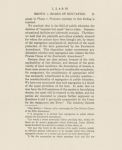We encourage our members on the West Coast to take note of the results of a survey of local public engagement in California recently conducted by NCDD member organization the Institute for Local Government. The survey results show that local governments need more support in key areas that many of our members work in, which hopefully means more opportunities are on the horizon! We encourage you to read ILG’s post about the survey results below, or click here for more on their effort.
ILG Public Engagement Program Releases Findings from Self Evaluation Effort
![]() “When citizens are actively involved in their civic and democratic institutions, their community and nation are stronger, more just, and more prosperous.” — Alan Solomont, Dean, Tufts University
“When citizens are actively involved in their civic and democratic institutions, their community and nation are stronger, more just, and more prosperous.” — Alan Solomont, Dean, Tufts University
As public engagement is a foundation of our democracy, the Public Engagement Program has been a foundation of the Institute for Local Government (ILG). A key component of our organization’s vision is to work toward a future where “all segments of the community are appropriately engaged in key public decisions.”
We’ve been working on this vision for more for a decade. But last year we decided to pause, assess our effectiveness and look at how we can best assist local governments. We retained outside consultants to help us undertake an ambitious, objective assessment of where we stand, what our local government partners need and how we can help them achieve their goals. The result was an in-depth evaluation resulting in informative infographics and accompanying narrative reports: “What We Did and What We Learned” and “Electronic Survey Results.”
These reports provide insight into the process used and input considered to assess the effectiveness of our program, while a complementary document, “The Future of Public Engagement Work,” outlines 10 recommended steps for the Public Engagement Program to take in order to better engage communities and local governments.
What We Did & What We Learned
ILG engaged with stakeholders across California to discuss what our public engagement program is doing well, how it can better serve local governments, and the challenges that local governments often face in making policy decisions. The result was a number of key observations, for example:
- The public engagement field is still developing;
- While local governments in California have made strides towards more inclusive public engagement in decision-making, they continue to report significant challenges; and
- ILG is uniquely positioned to expand training and technical assistance to local governments in California.
The Program also completed a resources inventory that includes the publishing of more than 500 resources and 200 conference sessions since 2005. In addition, we interviewed 11 similar organizations, providing a nationwide scan of the field. During these interviews, many key themes were expressed, including the importance of a practitioner support network and the need to share lessons learned at a national level.
Statewide Electronic Survey Results
In conjunction with our consultants, we also conducted an extensive survey that was completed by more than 250 stakeholders representing counties, cities, special districts, and public engagement champions in 42 of California’s 58 counties. The survey provided ILG with insight on the impact of the Public Engagement Program; for example, 83 percent of those who had participated in an ILG learning opportunity reported that it increased knowledge and/or capacity to engage people.
The survey also provided many insights into the challenges that local government officials face in making local policy decisions. Among the most cited problems were “it’s the same people who always participate” and a “lack of staff and/or financial resources.” Participants stated that they believed a public engagement model for policy decision making is best applied to the following areas: parks and recreation, land use and planning, transportation, and infrastructure.
The Future of Our Public Engagement Work
Additionally, the consultants recommended 10 possible “next steps” for the Program to consider pursuing. Highlights included:
- Increasing in-person outreach to discover local government needs and how ILG can assist;
- Establishing new cross-sector partnerships to expand effective public engagement practices; and
- Expanding the Public Engagement Program’s training opportunities and developing new tools.
The evaluation was conducted by our project consultants: Deb Marois, Converge CRT, and Adele James, Adele James Consulting. We thank The James Irvine Foundation for their generous support in making this assessment a reality, as well as in sharing our vision regarding the value of effective public engagement.
At ILG, we are excited about the future of our Public Engagement Program, and we are ready to put our consultants’ recommendations into practice.
You can find the infographics and their accompanying narrative reports on the Institute for Local Government’s website at: www.ca-ilg.org/PE2015Evaluation.




